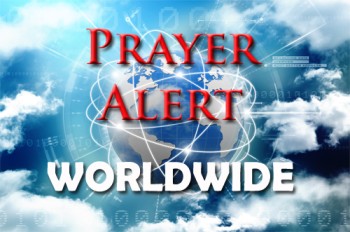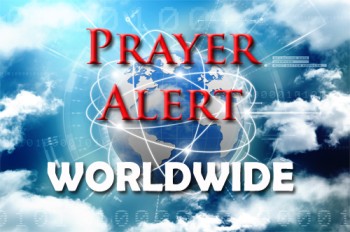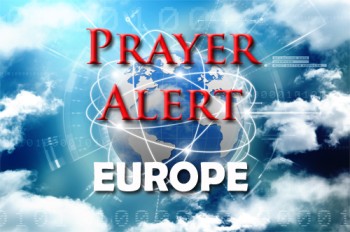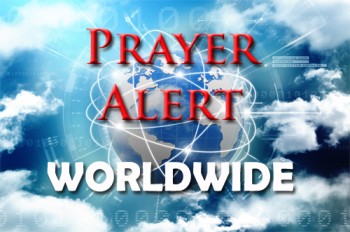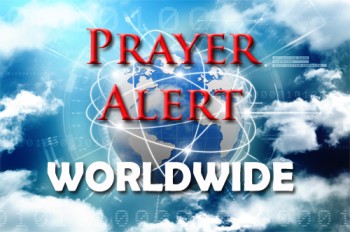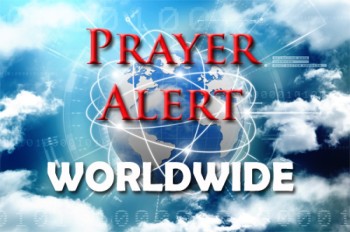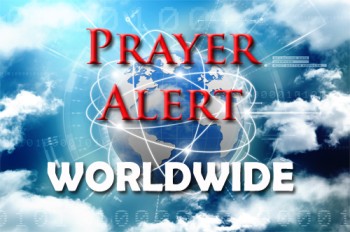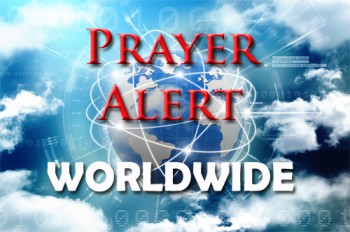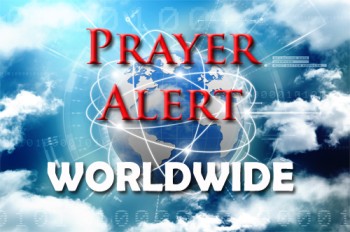Displaying items by tag: Donald Trump
USA: leading Republican breaks with Trump over refusal to release Epstein files
A political storm is brewing in Washington as divisions deepen over the Trump administration's refusal to release files related to deceased sex offender Jeffrey Epstein. House speaker Mike Johnson, a close Trump ally, broke ranks by expressing public support for the files' release, citing the need for transparency. However, he later voted to block a Democrat-led resolution calling for that very action. The justice department, led by attorney general Pam Bondi, denies the existence of a client list in the files, and maintains the matter is closed - sparking outrage among both Democrats and Trump’s MAGA supporters, who had been promised accountability. While bipartisan lawmakers are pressing for a House vote, Democrats in Congress and the Senate are pushing legislation to preserve and disclose all Epstein-related documents. The issue has become a flashpoint for demands for transparency and oversight, exposing cracks within the GOP and giving Democrats an opportunity to frame themselves as champions of accountability and reform.
Gaza: Trump says Israel has agreed to a ceasefire
Donald Trump has announced that Israel has agreed to the ‘necessary conditions’ for a sixty-day ceasefire in Gaza, pending Hamas’s approval. While the details remain vague, Trump said that the USA, along with Qatari and Egyptian mediators, will work toward ending the war. Hamas stated it is open to a deal if it guarantees an end to hostilities, the withdrawal of Israeli forces, and humanitarian relief. Israel’s key demand remains the release of most, if not all hostages held in Gaza. Hamas representatives in Cairo are reportedly negotiating, though insiders describe the talks as stagnant. Disagreements persist over the absence of a guarantee for permanent peace and continued military presence in Gaza. Meanwhile, the conflict continues: Israel has ordered evacuations in northern Gaza ahead of increased military action, and at least twenty Palestinians were killed in an Israeli air strike on a seafront café on 30 June. A previous attempt at a ceasefire failed in March. Trump's upcoming meeting with Netanyahu may prove decisive.
Colombia: reversing the migration trend
In the coastal town of Necocli, migrant families are now returning south after failed attempts to enter the USA, marking a reversal of a once-dominant northward migration trend. Harsh immigration policies under Donald Trump, including the withdrawal of the asylum app and increased military presence along the border, have left many stranded in Mexico or deterred from even attempting the journey. Some, like Luis Angel Yagua Parra, braved the deadly Darién Gap only to be forced back. Others, including a Venezuelan couple whose child was born in the USA, have left voluntarily, fearing deportation. Aid workers in Necoclí report a growing daily influx of returnees, but dwindling foreign support has led to closures of humanitarian organisations. Pastor Jose Mendoza’s food hall, struggling to meet rising needs, might have to close due to a lack of funding. For families like Marisela Bellorin’s, who have been homeless for months, survival is precarious. As the ‘American dream’ fades, many migrants are choosing new destinations such as Chile, in search of safety and stability.
NATO summit reaffirms collective defence, omits criticism of Russia
NATO allies, including the USA, have reaffirmed their ‘ironclad commitment’ to collective defence at a brief summit in The Hague. The final five‑paragraph communiqué emphasised unity, describing Russia as a ‘long‑term threat’ but stopping short of explicitly condemning its invasion of Ukraine, marking a shift from prior statements. In the only reference to the war, it said: ‘Allies reaffirm their enduring sovereign commitments to provide support to Ukraine, whose security contributes to ours.’ It also reaffirmed NATO’s founding tenet, that an attack on one is an attack on all, despite Trump hinting at differing definitions. A notable commitment was a pledge to raise defence investment to 5% of GDP by 2035. The toned‑down language and ambitious new spending target reflect tensions within the alliance. Meanwhile, on 24 June seventeen people were killed and over a hundred injured in a daytime Russian airstrike: see
Iran: Trump admits to doubt on damage to Iran’s nuclear sites
After a US bombing campaign targeting Iran’s nuclear facilities, Donald Trump and US defence secretary Pete Hegseth offered conflicting assessments of its impact. At first, Trump claimed total obliteration, later suggesting the damage might have been ‘moderate’ or ‘severe’, while a leaked Pentagon assessment concluded the setback was only a matter of months. CIA director John Ratclife insisted that critical sites like Fordow had been rendered inoperable for years, while Israel announced that the strikes had pushed Iran’s programme back significantly. Meanwhile, questions emerged about Iran’s highly enriched uranium, some of which appears to have been moved prior to the attacks. The IAEA warned that different estimates of how long it will take Iran to rebuild distracted from the larger issue of long‑term non‑proliferation, and the risk of Iran expelling inspectors and leaving the non-proliferation treaty altogether.
Trump’s strikes on Iran harden North Korea’s nuclear resolve
Donald Trump’s decision to authorise airstrikes on three Iranian nuclear facilities has strengthened North Korea’s belief that nuclear weapons are vital for regime survival. While both nations seek deterrence, North Korea’s approach is rooted in preserving the Kim regime itself, backed by its extensive nuclear and missile arsenal. A US strike on that arsenal is highly unlikely, due to the country’s ability to target Seoul and US interests in the Indo‑Pacific. Its deeply buried nuclear facilities and alliances with Russia and China further complicate any potential attack. Experts have warned that Trump’s decision has had a significant impact on Pyongyang’s foreign policy, strengthening its belief that possessing nuclear weapons guarantees survival. With deepening mistrust of the USA, North Korea will be even less likely than before to change its belligerent attitude.
Australia: vital defence pact under threat
The critical Aukus defence pact, agreed by Australia in 2021 with the USA and UK, to acquire nuclear-powered submarines, faces uncertainty as Donald Trump’s administration reviews its alignment with the ‘America First’ agenda. Valued at over $230 billion, Aukus promises Australia a strategic leap in military capability. However, some US officials are sceptical about the value of sharing its premier defence technology, and have cast doubt on allies ‘pulling their weight’. Australia's leaders are publicly calm, but anxieties are growing. Some warn that the deal was always fragile, while others urge Australia to reassess its dependence on the USA. With the Pentagon citing domestic submarine shortages and economic priorities, questions loom over whether Australia will ever receive the promised Virginia-class subs. Despite the turbulence, the alliance's strategic value in countering China remains. Experts argue that Australia could still defend itself independently, given its geography and resources, but emotional ties to the USA and fear of abandonment persist in national defence thinking.
USA: California governor condemns Trump’s use of National Guard
Gavin Newsom, the governor of California, has condemned Donald Trump’s uninvited deployment of the National Guard to quell unrest in Los Angeles, calling it an illegal escalation and ‘brazen abuse of power’. The unrest followed protests against Immigration and Customs Enforcement (ICE) raids targeting illegal immigrants. Newsom argued that California could have managed the protests without federal intervention and accused Trump of using force theatrically, inflaming tensions. He warned that such actions threaten democracy nationwide. Newsom also criticised the Trump administration’s indiscriminate deportations, which target hardworking immigrant families and foster fear. ‘Authoritarian regimes begin by targeting the vulnerable but do not stop there,’ he cautioned. Linking Trump’s actions to broader attacks on American institutions, from the judiciary to the press, he called for peaceful resistance. Urging citizens to reject fear and silence, Newsom ended with a call to defend constitutional freedoms.
South Korea: new president faces immediate challenges
Lee Jae-myung, South Korea’s new president, has entered office immediately following the impeachment of former president Yoon Suk Yeol, who failed in an attempt to impose martial law. Lee’s decisive victory, with nearly 50% of the vote, was a public rejection of authoritarianism. Though he campaigned to heal democracy and unify the country, his first task is confronting a crisis stemming from US trade and security policies under Donald Trump. South Korea faces 25% tariffs on all exports to the USA, threatening its already shrinking economy. The issue is compounded by Trump’s approach to intertwining trade with security commitments, casting doubt on the US military’s ongoing role in defending South Korea. Now, Washington’s strategic shift toward countering China could see US troops redeployed, leaving Seoul more vulnerable. Lee will seek to stabilize the economy and navigate complex diplomacy with both the USA and China, while asserting his country’s independence in a changing geopolitical landscape.
USA: Musk calls Trump’s tax bill an abomination
Elon Musk has sharply criticised Donald Trump’s multi-trillion-dollar tax and spending bill, calling it a ‘disgusting abomination’ and condemning the Republicans who supported it. Passed by the House in May, the bill includes expansive tax cuts, which Musk argued will increase the US budget deficit to $2.5 trillion and impose unsustainable debt on Americans. The tech billionaire, who has just ended his short tenure with the Department of Government Efficiency (DOGE), expressed disillusionment with Washington’s entrenched bureaucracy and the resistance to his cost-cutting agenda. He had originally aimed to slash federal spending by $2 trillion, but this was reduced first to $1 trillion and later to just $150 billion. DOGE’S controversial cuts, particularly to humanitarian aid, drew criticism and raised questions about actual taxpayer savings. The White House has dismissed his objections, but Musk, who served the legal limit of 130 days as a ‘special government employee’, urged Americans to vote out the politicians who backed the bill in the next election.
